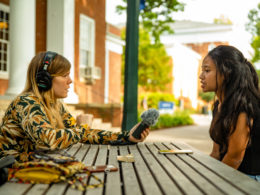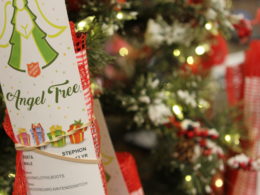Food insecurity, an issue faced all across the country, is a complex problem whose solution requires strong community work. According to the USDA, more than 38 million people in the United States, including 12 million children, regularly face food insecurity. COVID-19 has only exacerbated the issue, especially among communities of color where hunger has disproportionately been highest, even before the pandemic.
It is no different in Virginia as localities are coming together to combat food insecurity on several fronts. Feed More, a nonprofit organization based in Richmond, has a long history of working to help feed hungry families throughout Central Virginia. Feed More currently serves 29 counties and five cities, where, it says, one out of every 10 individuals faces food insecurity. That means that on any given day more than 165,000 people are unsure where their next meal will come from.
Alliances are a key strategy in addressing the challenges. Feed More partners with other organizations that help it reach deeper into these vulnerable populations. Programs like the Hunger Hotline, The Direct Store Pickup program, The Emergency Food Assistance program, Commodity Supplemental Food Program, Meals on Wheels and The Steve and Sarah Bayard Community Kitchen are community-based initiatives through which Feed More is attacking the problem at the community level. Add this to the nearly 100 employees and over 200 volunteers on staff, and you can appreciate the size of the commitment to helping those suffering from hunger.
Meals On Wheels Returning to Pre-pandemic Schedule
Over the past two years, COVID-19 has presented new challenges to the organization. One involved the necessity to downsize its output for Meals on Wheels. And as a consequence, Feed More had to reduce the number of volunteer opportunities that have been available to the public.
As things have begun to return to pre-pandemic rhythms, Feed More recently announced that it will now be returning to meal deliveries five-days a week by March 28, a five-fold increase from the one-day a week delivery offered during the pandemic.
“We’ve been planning this for months and have been hyper focused on this,” said Timothy Bothe, director of volunteer strategy and engagement at Feed More. “We still need additional volunteers between Richmond, Chester, Highland Springs and other locations.”
The need for volunteers is imperative as Feed More looks to scale up operations and continue to help the food insecure. Last year saw a 15% increase in food insecurity, so the issue has only gotten more pressing. During the pandemic, the number of Meals on Wheels clients rose heavily, despite cutbacks to delivery.
“We have a daily need of more than 200 volunteers on average to meet our mission throughout Central Virginia,” Bothe said. “It’s more important than ever to volunteer, in order to ensure the delivery of meals but also so we can turn our action into results for our community.”
In 2021 Feed More distributed over 39 million pounds of food, which equates to 33 million meals. And the organization expects demand to continue to rise in the year ahead, especially as supply chain disruption and inflation affect the food insecure in 2022.
The Meals on Wheels program continues to be one of the biggest focal points for Feed More, offering plenty of opportunities to deliver meals. But there are also other volunteer needs, including assistance in the kitchen in the making and packaging of food. Feed More is also screening for those who would like to volunteer on a remote basis instead of in person.
Feed More encourages as many volunteers as possible in order to continue their fight against food insecurity and provide the much-needed support to those who struggle to put food on the table.
If you’d like to sign up for volunteering, please visit the Feed More page at https://feedmore.org/get-involved/individuals/volunteer/










